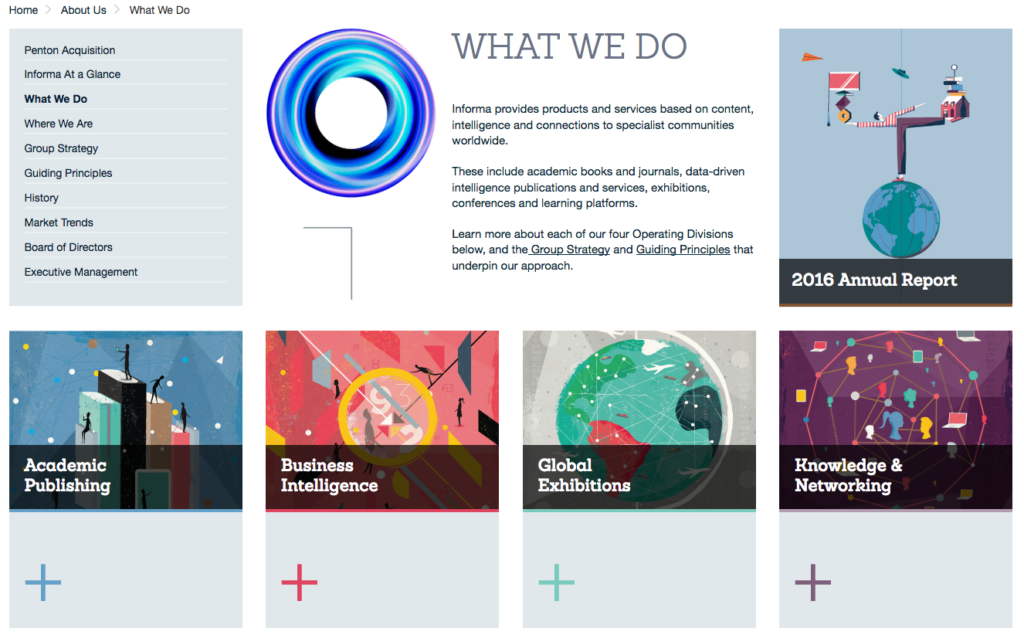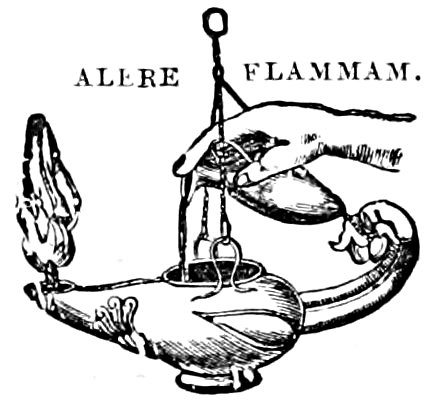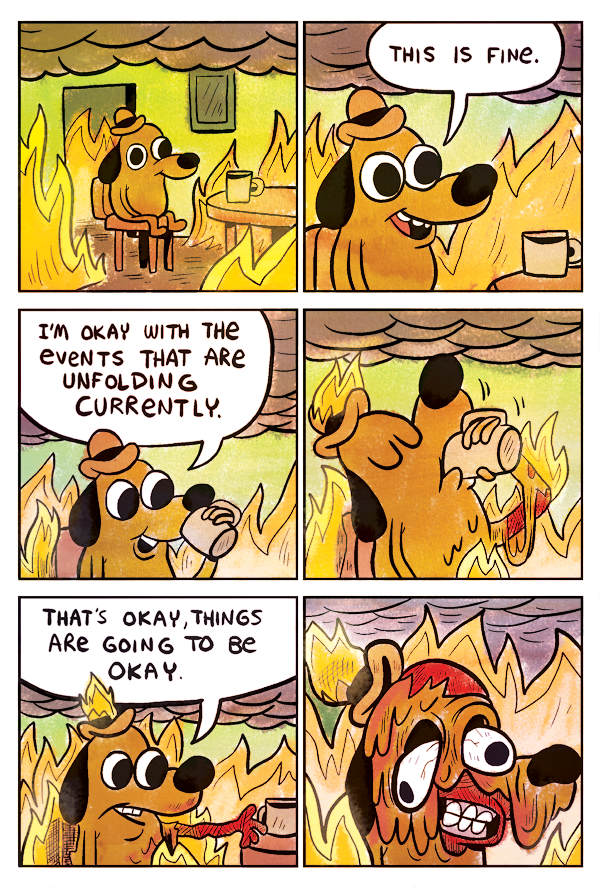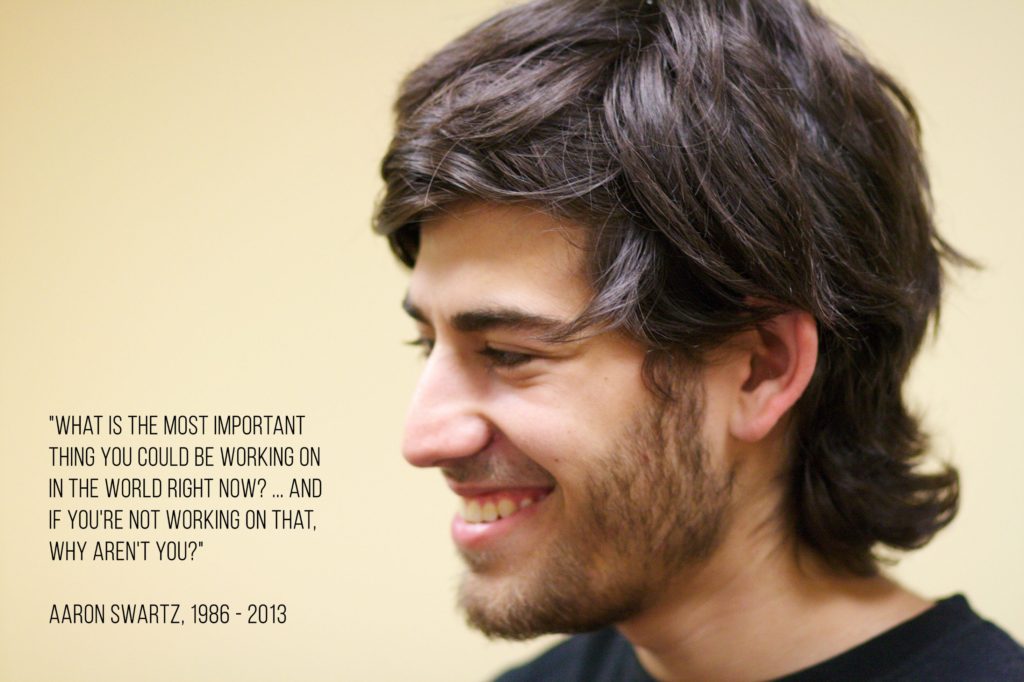by EILEEN A. FRADENBURG JOY
Caring for [ourselves] is not self-indulgence, it is self-preservation and that is an act of political warfare.
But we can’t (and we won’t!) continue to be administered by a ruthless regime of technocrats that wants to turn everyone and everything into bodiless data, into sermons sent over the wires. We’re creatures—weird in all of our multifarious, creaturely ways—and we have bodies and bodily needs. Like the old labor adage, “we want bread but we (also) want roses,” we are occupying the hallowed halls of academia, bringing along our beards, our make-up, our sexual lubricants, and our old Dylan records. The humanities are making a comeback, insisting that the sermon and the song are both absolutely crucial to making life livable. Following the lead of works like [Aranye] Fradenburg’s Staying Alive, we’re finding new ways to maintain our dignity as humanists and as humans.
We want an intelligence that’s tall and silver, oblique and black, purring and amplifying its décor; a thin thing, a long thing, a hundred videos, a boutique. Because we are both passive and independent, we need to theorize. We are studying the synthesis of sincerity, the synthetics of space, because they are irreducible and contingent. We are shirking the anxiety of origin because we can. We want to really exercise fate with extremely normal things such as our mind.
for the Librarians and the (Underground) Halls of Muses
Figure 1. Classical Spaceship: Bibliothèque Nationale De France, Paris, France
punctum doesn’t publish books for your grandmother’s tenure and promotion committee, which somehow, through a strange process of zombie-fication, is still operating within the ossifed crevasses of the Groves of Academe and calling the (parting) shots with a thousand (cutting) sneers and impact factors. punctum believes that the only consideration that should be taken into account when assessing a colleague’s or student’s work is whether or not it makes a unique contribution to the Pavilion of Thought, regardless of its form, style, subject matter(s), or “place of publication.” We further believe that the job of tenured faculty and administrators in the Public University (among other things like Research and Teaching) should be to improve the (currently deplorable) Working Conditions of their so-called junior colleagues (including adjuncts) and students so that unique Thought Acts, and the means and spaces for articulating those, become more possible for more persons. In this scenario, the Public University, and the Public Humanities by extension, does not regulate and officiate Thought, but rather creates the hospitable Open Conditions for its creative (and groovy) emergence. In this scenario, there are no Admissions Offices, no Bursars, and no Rank.
punctum does not publish books that satisfy the requirements of the traditional-yet-also-neoliberalized academic press’s marketing department, which department disappears as soon as your book is published, to be replaced by some new start-up impact/metrics company (like Kudos — thanks a lot, Duke University Press) that charges the press to tell authors how to market and track the impact of their own work on social media and other online platforms. In all honesty, punctum is not sure itself most days what the best methods might be (any more) to “market” anyone’s work (the airwaves are beyond crowded), but we’re fairly certain it’s our responsibility to collaborate directly with authors on “getting the word out,” however possible, and not with the assistance of for-profit companies that are merely adding to and ratcheting up the career anxieties of researchers already feeling “left behind” in the Neoliberal Academy that prizes the (media-saturated) Competitive Agon over the open and mutually supportive (and creatively dissensual) Demos of Thought, and in which Competitive Agon one is always looking over one’s shoulder at the self-citing Academia.edu “top 2-percenter” who has more Twitter followers than you do, and whose cheery Instagram posts about their latest invited speaking engagement is making you nauseous, not with envy, but with performance anxiety and careerum tremens.
Figure 2. Here Be Monsters: Bold Fortune on the Waves (Paolo Forlani world map, 1565)
punctum does not publish books that will serve the needs of some worn-out (and yet still oppressive) methodological paradigm that has run out of steam but continues to dig its claws into its academic “real estate,” refusing to open the door to Teratological Thought. Whereas the sign above punctum’s door says, HERE BE MONSTERS: our books are powered by the winds of chance (Wayward Thought) and monstrous Bodies of Thought, and Spirit (see visualization above), for we know, along with Foucault, that “in every society the production of discourse is at once controlled, selected, organized and redistributed according to a certain number of procedures, whose role is to avert its powers and its dangers, to cope with chance events, to evade its ponderous, awesome materiality. In a society such as our own, we all know the rules of exclusion. The most obvious and familiar of these concerns what is prohibited [to be published].” punctum opens the door to chance — to fruitful wandering (as opposed to how business scholars define contingency in relation to “knowledge management”), and punctum seeks to publish what has been prohibited to be published in as many monstrous forms as possible. We call this the ethics of academic publishing.
punctum does not publish cheaply-produced books that are hoped will “break even” (which, in the case of the academic monograph, has traditionally meant selling 250-300 grossly overpriced, hardbound copies to institutional libraries, although these numbers are dropping precipitously thanks to library budgets being decimated by journals subscriptions), after which point these books can be dropped “off list.” punctum is focused instead on publishing as both an artisanal craft (that should pay a great deal of attention to the unique voices of its authors and the editorial-aesthetic attention which those voices deserve) as well as a house of hospitality that seeks to foster and preserve (in long time-frames) work that might not find a welcoming harbor elsewhere. I personally resigned a tenured professorship in 2012 in order to run punctum books full-time because during my career as a researcher in the humanities (close to 20 years), I grew alarmed (and depressed) by all of the ways in which research becomes homogenized under the pressure of certain “protocols” (whether the expectations of tenure & promotion committees, or because traditional university presses, knowing full well what those T&P committee are up to, encourage and enforce, sometimes in oblique ways, certain forms and styles of thought, or because certain fields of thought, even the most radical, engage in certain forms of gate-keeping, etc.). I reflected then, and still do now (with no little thanks to Thomas Kuhn), that the greatest discoveries and achievements in the history of knowledge have almost always arrived via unconventional, unexpected routes. How will we, within the Humanities, prepare the way for such arrivals when we are usually so invested in certain protocols of disciplinary (and other) oversight that we are (perhaps unconsciously) homogenizing our fields? What, further, will happen to the increasing ranks of post-graduates who are having a harder and harder time securing university employment (and who are, further, entering a world in which more and more labor is being automated and casualized)? Who will publish them? Who will advocate for their important and rightful place within our Public Commons? Who, indeed.
punctum does not understand radical-critical-leftist work that supposedly questions dominant, hegemonic Regimes of Thought (and malfeasant and inherently anti-democratic socio-economic systems), or that calls out the “business-as-usual” of the Neoliberal Academy, but is then published with aggressively for-profit commercial publishers (monsters of a different, bloated and malign, sort) like Elsevier, Wiley, Routledge, Taylor & Francis, Springer (etc.), and is therefore only available to those with Institutional Log-In Credentials or deep pockets. And punctum laments the fact that the Digital Humanities does not spend enough time thinking (critically) about all of the ways in which it is (consciously and unconsciously) partnering with forces (the so-called “dark side”) that are anti-humanitarian, commercially predatory, and surveillance-oriented in the extreme. Nor can punctum even begin to comprehend the vast number of persons who have lost their access to library holdings once they have exited (or been booted out of) the University and are never able to regain them, thus finding themselves cast adrift on the wild seas of the Outside of the so-called Knowledge Economy (it’s called the Internet, the important “neutrality” of which is currently up for grabs: what’s the frequency, Kenneth?), speaking of which …
… punctum does not publish books to contribute to a Knowledge Economy, which we believe is an oxymoron. A key concept of the Knowledge Economy (a phrase first popularized in 1969 by the “management consultant” Peter Drucker) is that knowledge and education (often referred to as “human capital,” a term coined by University of Chicago economist Gary Becker) “can be treated as one of the following: (a) a business product, as educational and innovative intellectual products and services that can be exported for a high value return, and (b) a productive asset.” A Knowledge Economy can also be defined as production and services “based on knowledge-intensive activities that contribute to an accelerated pace of technical and scientific advance, as well as rapid obsolescence.” punctum rejects the Knowledge Economy (which is destroying the ability of university libraries to grow and protect robust collections) in favor of an Open Commons, in which publicly-funded research is open and accessible to all who need it for any given purpose (this is called Teaching and Learning). In the absence of government mandates in the US (not counting Pres. Obama’s 2013 Executive Order, covering only the Sciences) to foster and protect such an Open Commons — whose watch-words would ideally be Democracy, Equity, Pluralism, Openness, Accessibility, and Care (yes, there are 6 watchwords!) — punctum celebrates the Pirate Librarians, and categorically refuses to participate in the author-pay system of Open Access Publishing, which is the worst acceleration ever of the University as Competitive (yet stone-cold broke) Agon. As Gary Hall and Janneke Adema have written, “Open access is currently being positioned and promoted by policy makers, funders and commercial publishers alike primarily as a means of serving the knowledge economy and helping to stimulate market competition. This version has become so dominant that even those on the left of the political spectrum who are critical of open access are presenting it in much the same terms: as merely assisting with the ongoing process of privatising knowledge, research and the university.” That even the Open Access movement is seen as a fresh opportunity for the maximization of corporate profits and the stimulation of market competition — specifically in relation to what commercial publishers can hope to plunder from the coffers of Public Universities (meaning: our tax dollars, students’ tuition dollars, etc.) — should trouble all of us deeply. We need better alternatives.
Figure 3. The Dark (White) Overlords of Informa, Inc., who own Taylor & Francis, who oversee Routledge, Ashgate, Maney, and Gower (among other presses)
punctum does not work for mega-conglomerate companies such as Informa, Inc. (who own Taylor & Francis, Routledge, Ashgate, Maney, Bloomsbury Journals, Garland, Haworth, Pickering & Chatto, etc.), and whose subsidiary Taylor & Francis in 2017 removed an editor of a public health journal (International Journal of Occupational and Environmental Health) who published articles critical of corporate interest in academic research and replaced him, without consulting the journal’s editorial board, with a corporate “toxicology risk assessment” consultant. This is also the same company that acquired the family-owned publisher Ashgate which, combined with Taylor & Francis and Gower, now constitutes the largest publisher in the world of monographs in the Humanities and Social Sciences, but not before T&F/Informa shuttered the US and UK offices of Ashgate, firing many of the employees and reassigning others to Routledge, where Ashgate is now housed. Informa, who sell “business intelligence” products and organize trade shows, is mainly fed and watered (to leviathan size) by its holdings in academic publishing, which accounted for $616 million of its $1.7 billion revenue in 2014. The new, contemporary logo for Taylor & Francis is a lamp with a lit flame that derives from the company’s original logo (prior to its acquisition by Informa, Inc.), from when it was founded in 1852, which depicts a human hand filling a lit lamp with oil, with the phrase “alere flammam” — to feed the flame [of knowledge]. More like: to feed the flame of obscene profit margins through the privatization (really: theft) of publicly-funded research that more properly belongs to the Open Commons and the citizens who support and fund university research with their taxes. It cannot be emphasized enough that it is the ultimate intention of these corporations to thoroughly privatise all functions of the public university — from curricula development and teaching to the production, dissemination & management of research outputs (in which scenario these companies are actually trying to eliminate the Library as a meddlesome and “inefficient” middle-broker).
Figure 4. The flame of obscene profit margins
punctum does not publish work that challenges the Status Quo while nevertheless still insisting on the importance of having a Status Quo; rather, in the words of Jack Halberstam, writing in solidarity with Fred Moten and Stefano Harney’s Undercommons, we “begin with the right to refuse what has been refused to [us].” In other words, we are not a Prestige Publisher and reject the notions of “prestige,” “privilege,” and “authority” outright. To those who might say that traditional academic presses have done valuable work to help secure institutional status for those who might have otherwise floundered in their careers without such status (and we agree that they have done, and continue to do, this valuable work, but) … with Simone Weil we also say that there can never be any such thing as equal privilege because privilege by its very nature could never be equal (ill/logical), and because to even desire privilege (which is always over and against others) is obscene. When one considers that adjunct faculty positions now make up over 70% of all teaching positions within the University, the scarcity (and obscenity) of institutional privilege has reached new highs. punctum rejects all forms of Authority that insist on their Authority because punctum agrees, with Bill Readings, that the only “business” of the University (in Ruins) at present is “placing Thought alongside Thought” (an always-already and always-to-be “structurally incomplete practice”) and to think beside each other, which is to say, “try[ing] to do what we can, while leaving space for what we cannot envisage to emerge.” punctum works for the University Without Condition(s).
punctum does not tell authors what the forms, structures, and styles of their work and writing should be, but rather believes that the form of any published work should be rooted in the singular, individual mind that first gave birth to the work. We further believe, with Anna Klosowska, that style is a “third element” (beyond all binaries) which is also “the principle of generation.” Traditional academic presses — although they have published many erudite, brilliant, and valuable books — nevertheless have also run many manuscripts through what Woody Allen once called a “de-flavorizing machine,” leading to a certain (oppressive) homogenization of the academic monograph. punctum is a press that specifically answers to the specific desires of singular individuals who might almost be said to be dying(inside) to write something that they have convinced themselves in advance is unpublishable and for which no existing publisher would take the risk or hazard. punctum practices a form of “care of the self” that attends to these singular desires, allowing them to flourish and find their way into a world that would (hopefully) be sustaining of the spirit and dignity (and individual style) that gave birth to them. It’s not that punctum does not ever see the dark side of so-called “individualism,” so …
… while punctum is always on its guard against the thuggery of an unchecked (and poisonously narcissistic) individualism in which some (few) winners “take all” (our current economic situation), with the political philosopher George Kateb, we believe that the understanding and words of any one individual are “indispensable to the completeness of the world.” Our lives may be transitory, but the mind of each individual is a precious (and potentially transhistorical) jewel (with time-traveling powers) because, however ephemeral, in Kateb’s words, “It has touched reality and become real.” punctum believes it is the publisher’s responsibility to add as much as possible to the always incomplete (and gorgeously complex) completeness of the world (to add more minds, in other words), and in so doing, to enrich the environment(s) in which we think, write, work, and (try to) live, which has to be about thriving as much as it is about surviving. We learned this from Aranye Fradenburg, with whom we agree that enriched environments (and the creative expression that is nurtured and maximized in those spaces) “matters to life; organisms want to live only when life is worth living.” Or as the Darwinist A.R. Wallace wrote in 1891: “the popular idea of the struggle for existence entailing misery and pain on the animal world is the very reverse of the truth.” What it seeks, and often finds instead, is the “maximum of life and of the enjoyment of life.” For punctum, the Publisher is an Agent of Enriched Environments.
Figure 5. The Dark (White) Overlords of The Carlyle Group, who control a 54% stake in Newgen KnowledgeWorks who provide pre-press & post-press publishing and data services to pretty much every major university and commercial academic press you’ve ever heard of (and published with)
What punctum does is … we publish books by authors who understand that WHERE they publish their work is just as important as its so-called “radical” content. With Gary Hall in Pirate Philosophy, we ask, “How do you apply your theoretical principles to the structures that make your work visible?” What does it mean, for example, for a scholar working in post-colonial studies to publish their monograph on post-colonial studies with a university or commercial academic press that outsources its production labors (copy-editing, typesetting, coding, printing, e-book conversion, data management, etc.) to private companies such as Newgen Knowledge Works, Ltd., based in Chennai, India (with offices also in Austin, Texas, New York City, and London, UK), which has zero transparency relative to the working conditions of its employees (but you can bet they are not the best, given how cheap their services are, which services have been contracted by presses such as Stanford University Press, University of Chicago Press, Wiley-Blackwell, Palgrave Macmillan, Yale University Press, Duke University Press, Nature Publishing Group, Fordham University Press, The MIT Press, Taylor & Francis, Cambridge University Press, etc.). Over 50% of Newgen is owned by The Carlyle Group, an American multinational private equity, alternative asset management (say what?), and financial services company (one of the largest in the world with $193 billion in assets as of 2016) that specializes in “corporate private equity, real assets, global market strategies, and investment solutions.” What the what? Guess what? Most of you work for these Dark (White) Overlords now. You’re their servants (or at the very least, their unwitting drones), and your scholarship pays for their BMWs, bespoke suits, and Learjets. I believe that there are many well-meaning persons who work with the presses who contract with companies such as Newgen, and who are trying to advance the cause(s) of humanistic, social scientific, and scientific scholarship as best as they can; nevertheless, we have all entered into highly questionable working relationships with corporate partners whose business imperatives not only do not line up with the mission of the public research university, but which are even in active conflict with that mission. [Full disclosure: I edit an academic journal, postmedieval: a journal of medieval cultural studies, which is published by Palgrave Macmillan + Springer Nature and has been produced with the assistance of Newgen KnowledgeWorks, and I consider this an ultimately unethical and untenable state of affairs, especially as I myself receive a small stipend each year for my work on the journal, and in short, as painful as this is to admit to myself, I must bring this relationship to a close, one way or another, and sooner rather than later. In addition, the print editions of punctum’s titles are produced by CreateSpace, a subsidiary of Amazon, and those same print editions are made available for sale on Amazon.com, another situation we consider untenable and for which we are working on alternatives.]
Figure 6. KC Green, “This is Fine”
punctum understands that by claiming to be an Open Access press, we not only have an obligation to grant to all of our readers free access to our titles (which we do for each title after a brief 6-month period in which PDFs for each title are $5, then afterwards are “unlocked” and are 100% free to download), but that we also have an obligation to grant to our readers (and authors), in the (partial) words of the 2003 Berlin Declaration, “a license to copy, use, distribute, transmit and display the work publicly, and to make and distribute derivative works, in any digital medium for any responsible purpose, subject to proper attribution of authorship,” and with the further understanding that the derivative works not be produced for commercial gain in any form whatsoever, and that they be distributed under the same license under which they were first released (which in punctum’s case is Creative Commons License BY-NC-SA). But punctum feels strongly that this is not a robust enough definition of what Open Access should ideally mean (and we further believe that that the term Open Access should remain perpetually open for continual debate and ongoing re-definition). We are an Open Access press, not just because we make our titles broadly available to the public (to readers) without paywalls (although we do do that, and it matters, especially in the context of the Public University where research should never be shuttered from the public), but because we are dedicated to opening up access to the means and modes of publication for authors who otherwise might not find a publisher, either because their work does not fit within a readily recognizable current disciplinary paradigm, or because they want to experiment with the forms and styles of academic writing, or because their work engages in disciplinary mashups that would make marketing their work overly difficult, and so on. It’s a question of personal freedom (what Ivan Illich once memorably advocated for as “the protection, the maximum use, and the enjoyment of the one resource that is almost equally distributed among all people: personal energy under personal control”), and how the publisher (however defined: university-based, independent, etc.) is an agent of both sustenance and change. It’s about recognizing that the Public University, and especially the Humanities, should be the haven par excellence for the weirdos and for the weird and for the care and curation as well of “seeding” New Publics, around which persons, who otherwise might become marginalized, suppressed, lost, etc., can “groupify” (in important counter-cultural modes) with others who share certain predilections, values, orientations, affinities, etc. So what we need right now, in our view, are more distributive collectives of someones, nomadic para-institutions, or “outstitutions,” who would take responsibility for securing the freedom for the greatest number of persons possible who want to participate in intellectual-cultural life. And a publisher would be a person, or a group, or a multiplicity, who takes up the responsibility for securing this freedom, speaking of which …
Figure 7. Aaron Swartz, 1986-2013
… punctum further understands that Academic Freedom is not a right to be granted to those with secure institutional status, but rather is an endless, collective struggle to clear and secure the open (and enriched) spaces so necessary for freedom to take root — to build and foster spaces of radical hospitality within which individual researchers might have more freedom than currently exists to experiment, to take risks, and most importantly, to pursue in their work their (and not our) desires, unencumbered by professional anxieties over whether or not those desires are legitimated in advance by what particular fields have already deemed as “proper” to themselves. punctum feels it is worth repeating: freedom is not a right to be granted to some, and not to all (which is obscene in the extreme), but is rather an everyday practice, a struggle, that we must work at collectively on behalf of others, especially including Others who, although they may desire it, have no secure foothold whatsoever in the University Proper — which University Proper has been more than happy to drive these Others into staggering levels of debt for the privilege of a Degree, while they have also been actively removing the chairs and the desks and the breathing room that would have enabled these Others’ further participation as valued members of the Knowledge Commons (we speak of the Adjunctification of the University). In the midst of these (psychic and bodily) agonies, punctum agrees with Frederick Douglass that “if there is no struggle, there is no progress.” And with poet Lisa Robertson, we say that “[w]e need dignity and texture and fountains. What is the structure of freedom? It is entirely synthetic.”
punctum believes that anyone, anywhere at all, who has Privilege (a dubious distinction, as we explain above, yet some possess it nevertheless) is obligated to care for others who have less privilege, and to help to make intellectual and creative freedom more possible for others who work within climates of deprivation and disenfranchisement, and who despair of ever having a voice that would ring alongside other voices, and be valued in kind, within the Public Commons. punctum believes further that the “public” in Public Commons is intimately tied to the work and scene(s) of PUBLIC-ation, around which it is hoped, in Michael Warner’s words, that “the poiesis of scene-making will be transformative, not replicative,” and out of which it is believed all manner of (sustaining) groupifications could become possible: the “learned society” refashioned in gonzo style, for example, in the words of A.W. Strouse, as “an interstellar Raft of the Medusa, patched together from the ruins of the postmodern university, a make-shift escape-pod sending out distress signals (and mating calls) to other Gonzo [academics].” punctum believes (again with Michael Warner) that a Public, through Public-ation, unites strangers together in writing (Friendship) and is a Poetic World-Making Adventure.
Figure 8. a future Hipster Professor
punctum knows it is a hackneyed cliché, but we still believe it, anyway: another world (of Academic Publishing) is possible. But we don’t think we can just say these things while taking yet another drag on our “not my problem” vaporizer in the Hipster Café of Self-Absorbed Tenured Radicals who think being “political” and intellectually “cool” (at the same time) means publishing leftist diatribes (about #Occupy, Marxism, Disaster Capitalism, Poverty, Debt, Terrorism, the Anthropocene, whatEVER) with the intellectual property thugs at Verso Books (to cite just one example, among many, of the ways in which scholars’ politics and theories don’t always line up with the vehicles in which they publish their work). The road to this Another World of Academic Publishing is already littered with land-mines (called commercial-conglomerate publishers, such as Elsevier, but also tenure & promotion committees, and other agents of the Techno-Managerial University who can’t always seem to wrap their brains around the idea that they should celebrate and help to foster Creative Thought wherever they might encounter it, not to mention our government’s complete abdication of their responsibility to fund and support an Unbounded Knowledge Commons called an Institute of Higher Education whose Research Production should not be behind any Paywalls), but that doesn’t mean we give up the fight.
So, to begin: Divest Yourself from Academic Publishing-as-Usual. However you can. Publish with university-based presses who are willing to take risks with unconventional subject matter and the creative forms and styles of writing that attain to such and in ways that are economically accessible, if not free (University of Minnesota Press comes to mind, but there are others), and who don’t partner with questionable corporate entities whose only interest in academic publishing are the (obscene) profits to be gained thereby. In short, ask better questions of the press directors and editors with whom you publish, and also be more aggressive in insisting on your economic rights as an author (in other words, stop signing over all of your copyrights, and insist on more Copyleft-styled, or copyright sharing, arrangements). Do not publish with commercial-conglomerate academic publishers (such as Elsevier, Taylor & Francis, Routledge, and the like); stop being the person, for example, who publishes an article on “Living the Neo-liberal University” that is published by Wiley and can only be downloaded with institutional log-in credentials or for $38 (this is also called being a stooge). Or, if you are ineluctably enmeshed with these entities (as I myself and punctum are, as confessed above), start building an escape hatch. Publish with well-regarded open-access venues that do not charge authors (and their departments and colleges) to publish with them (that includes punctum books, but also presses such as Open Humanities Press, Open Book Publishers, Lever Press, re.press, Manifold Scholarship, Mattering Press, Minor Compositions, and Open Library of Humanities, not to mention the many OA journals that are out there and emerging all of the time). Convert an existing (paywalled) journal that you edit or manage in some way to Open Access. Start a new, open-access press to foster a book series within your discipline, or bring a book series / imprint proposal (or new journal proposal) to an existing open-access press. If you are in a position to evaluate others who are coming up within the institutional system for review, promotion, and the like, work with your colleagues and administrators to revise your policies and procedures to ensure that what matters most about anyone’s scholarship is its content and not its “place of publication” or “impact factors” (and while we’re at it: stop scaring graduate students and junior colleagues into believing that if they don’t publish their first book with certain agreed-upon, approved-in-advance “prestige” publishers, they will destroy any chances they have at a secure career). Perhaps even help to put policies into place that would encourage and reward publication in more open and experimental publishing platforms as a Public Service for the Greater Good. Help existing open-access publishers and platforms to thrive by working on their behalf as editors, reviewers, advisers, and authors, and wherever possible, by directly supporting their work with whatever small (or larger) coins you have at hand. Spend more time talking to librarians, and ask them how you can assist them in their efforts to reinvigorate the library’s holdings against their takeover by obscenely rapacious commercial-comglomerate publishers. Write your political representatives to urge them to pay better attention to the corporate takeover of academic research (which intellectual property should be held “in trust” between the government and the public that helps to fund that research) and to draft legislation that would mandate and fund open-access publication of university research (as they have done in the UK and in Europe, and are starting to do in some places in the US, such as at the University of California).
Figure 9. Yet another graduate student slayed by the Academic-Industrial Complex (Lego Graduate Student Tumblr)
In short, take more risks, ask better questions, do not write or edit for anti-public (profit-driven) publishers, become a more involved citizen with regard to the institutional cultures around the evaluation of scholarship (a treasure we hold “in common” with each other), provide some service to an existing open-access press, perhaps even become a publisher yourself, or barring any of that (or in addition), become a supporting patron of an existing open-access press, however you can. And always spend more time talking to librarians, as for a long time now, they have served on the front lines against the corporate takeover of the Public University and its “holdings.” And talk to legislators (civic responsibility). The more we work together on behalf of an Unbounded and Open Public Knowledge Commons, the more we will lessen our dependency on the Dubious Captains of the Knowledge Economy.
Hopefully you have read through all of this carefully enough to already understand that companies like The Carlyle Group, Newgen KnowledgeWorks, and Informa, Inc. — all of whom have their tentacles so far into academic publishing that we are all puppets on their strings — have no interest whatsoever in the “public” part of the Public University, and that we (collectively) bear a responsibility to return the Intellectual Goods they have stolen from us to all of the persons (both within and outside of the University Proper) on whose behalf we labor as Public Servants. We have allowed the University to become inhospitable in every possible manner (this is well-documented) and we have stood by and watched as administrative technocrats have sold off, sub-leased, and sub-contracted every piece of our Real Estate and Human Resources (intellectual, material and everything in between). Will there be anything left that belongs to us that will help us to sustain ourselves while also allowing us to openly share what we have learned and know with others? The answer lies with the existing (tenure-tracked) faculty-researchers who either will, or won’t, heed this call.
Some Sources
Paul Boshears, “Para-Academic Publishing as Public-Making,” in The Para-Academic Handbook: A Toolkit for Making-Learning-Creating Acting, eds. Alex Waldrop and Deborah Withers (Bristol, UK: HammerOn Press, 2014), 175–188.
Jacques Derrida, “The Future of the Profession or the University without Condition (thanks to the ‘Humanities,’ what could take place tomorrow,” in Jacques Derrida and the Humanities: A Critical Reader, ed. Tom Cohen (Cambridge, UK: Cambridge University Press, 2001), 24–57.
Jacques Derrida, On Hospitality, trans. Anne Dufourmantelle (Stanford: Stanford University Press, 2000).
Peter Drucker, The Age of Discontinuity: Guidelines to Our Changing Society (New York: Harper & Row, 1969).
Michel Foucault, “Appendix: The Discourse on Language,” in The Archaeology of Knowledge and the Discourse on Language, trans. A. M. Sheridan-Smith (New York: Pantheon Books, 1972), 215-237.
Michel Foucault, “The Ethics of the Concern for Self as a Practice of Freedom,” in Foucault Live: Collected Interviews, 1961-1984, ed. Sylvère Lotringer (New York: Semiotext(e), 1989), 432-449.
L.O. Aranye Fradenburg, Staying Alive: A Survival Manual for the Liberal Arts, ed. Eileen A. Joy (Brooklyn: punctum books, 2013).
Stefano Harney and Fred Moten, The Undercommons: Fugitive Planning and Black Study (New York: Minor Compositions, 2013).
Ivan Illich, Tools for Conviviality (New York: Harper & Row, 1973).
Eileen A. Joy, “Let Us Now Stand Up for Bastards: The Importance of Illegitimate Publics,” Chiasma: A Site for Thought 2 (2015): 11-28.
George Kateb, “The Idea of Individual Infinitude,” The Hedgehog Review 7, no. 2 (2005): 42.54.
Anna Klosowska, “Style as Third Element,” in On Style: An Atelier, eds. Eileen A. Joy and Anna Klosowska (Brooklyn: punctum book, 2013), 27-36.
“Knowledge Economy,” Wikipedia, Jan. 29, 2017, https://en.wikipedia.org/wiki/Knowledge_economy.
Bill Readings, The University in Ruins (Cambridge: Harvard University Press, 1996).
Lisa Robertson, “Spatial Synthetics,” Tarpaulin Sky 4.2 (2006): http://www.tarpaulinsky.com/Fall06/Robertson.html.
A.R. Wallace, Darwinism: A Exposition of the Theory of Natural Selection (London: Macmillan, 1891), http://www.gutenberg.org/files/14558/14558-h/14558-h.htm.
Michael Warner, “Public and Counterpublics,” Public Culture 14, no. 1 (2002): 49-90.
Simone Weil, “La personne et la sacré,” in Écrits de Londres et dernières lettres (Paris: Gallimard, 1957), 11-44.










I think your argument would be stronger if you said White Overlords instead propagating the Nordic model
Thanks for that suggestion, Jennifer! We’ve incorporated an emendation to reflect that good advice.
Excellent post that gets to the guts of the matter. As someone working in academic publishing (health sciences), I’ve seen the ridiculous increases in “author processing charges” and limited access to allegedly “open access” journals. Thank you, punctum books, for being an alternative. And I just spoke with an established physician/researcher who is “disgusted” with the researchers he knows taking money from drug companies because as he said “they can make $1000 an hour running clinical trials and they can get lots of papers out of it.”
Thank for these further comments, Mary, and in short: solidarity!
“…because privilege by its very nature could never be equal (ill/logic), and because to even desire privilege (which is always over and against others) is obscene.” Yes, yes, yes! This is great, Eileen, I agree with every single word you wrote, and I’m so grateful you wrote this article. It is a necessary stance — and we all should engage in changing the scenario you described, which is destroying scholarship and innovative research everywhere in the planet.
But speaking of aggressively for-profit commercial companies, if we really want to be consistent, we should start seriously questioning (and hence not using/finding alternatives) The Frightful Five, which are far more dangerous for knowledge and biocultural diversity: https://www.nytimes.com/2017/05/10/technology/techs-frightful-five-theyve-got-us.html?_r=0
Some interesting alternatives can be explored, and some are already there:
https://degooglisons-internet.org/
Yes, Domenico! You are right, we must also be on our guard against Google, Apple, Facebook, Amazon, etc. I worry about this a lot as punctum’s books are printed by CreateSpace, who are a subsidiary of Amazon. There are not many alternatives to them and they control the lion’s share of the print-on-demand market (alongside Ingram Spark, Lightning Source, and just one or two others), which is definitely invested (collectively) in ultimately eliminating as much human labor as possible and casualizing the rest. These are frightening times.
indeed, we need our own platforms like the good folks @ https://decodeproject.eu/
are trying to produce, technological sovereignty for all who care and those who don’t.
cheers, dirk
Excellent!
Where has punctum been all my life.